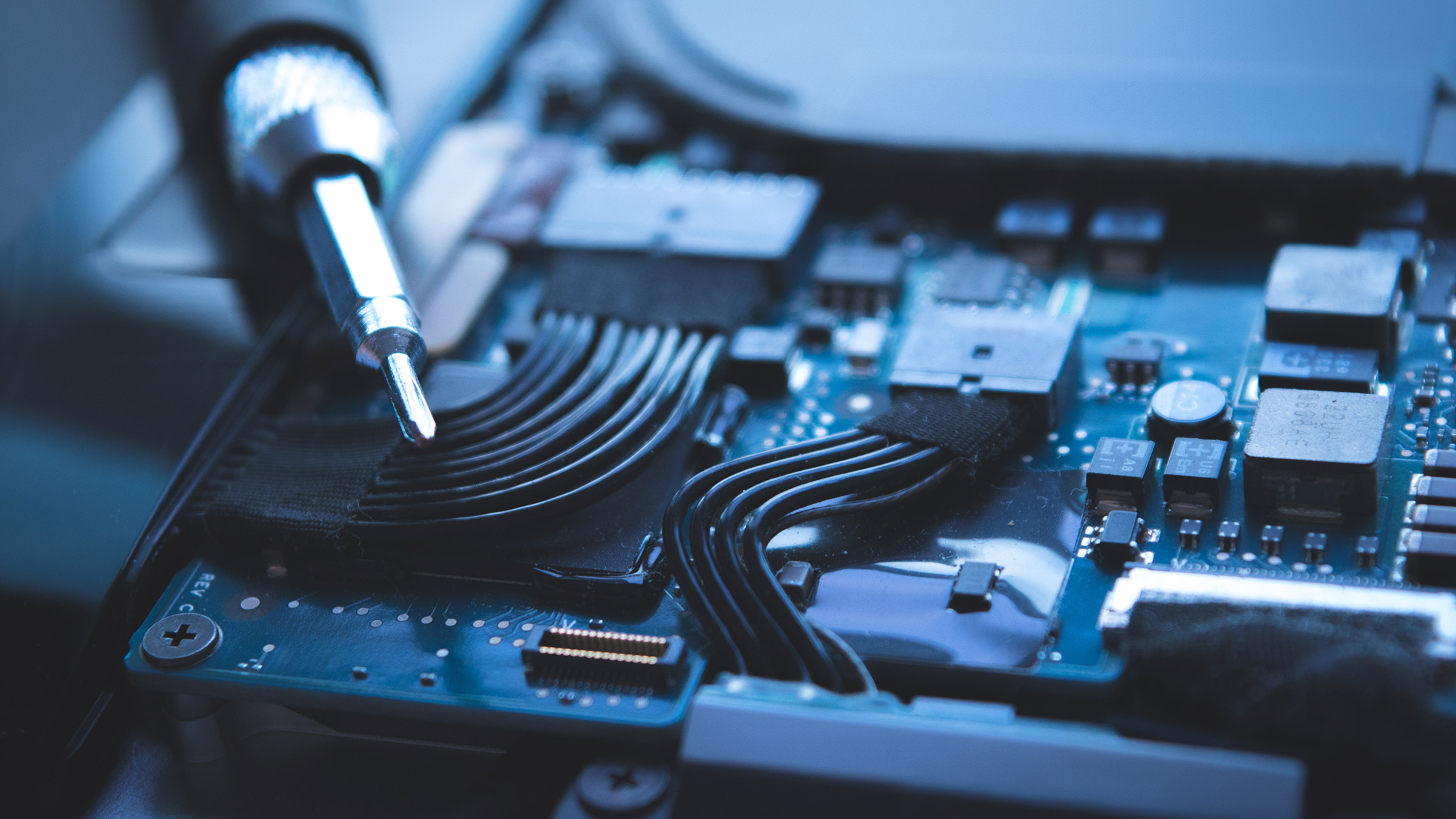André Martins participates in the session “From a PhD to an ERC Grant”
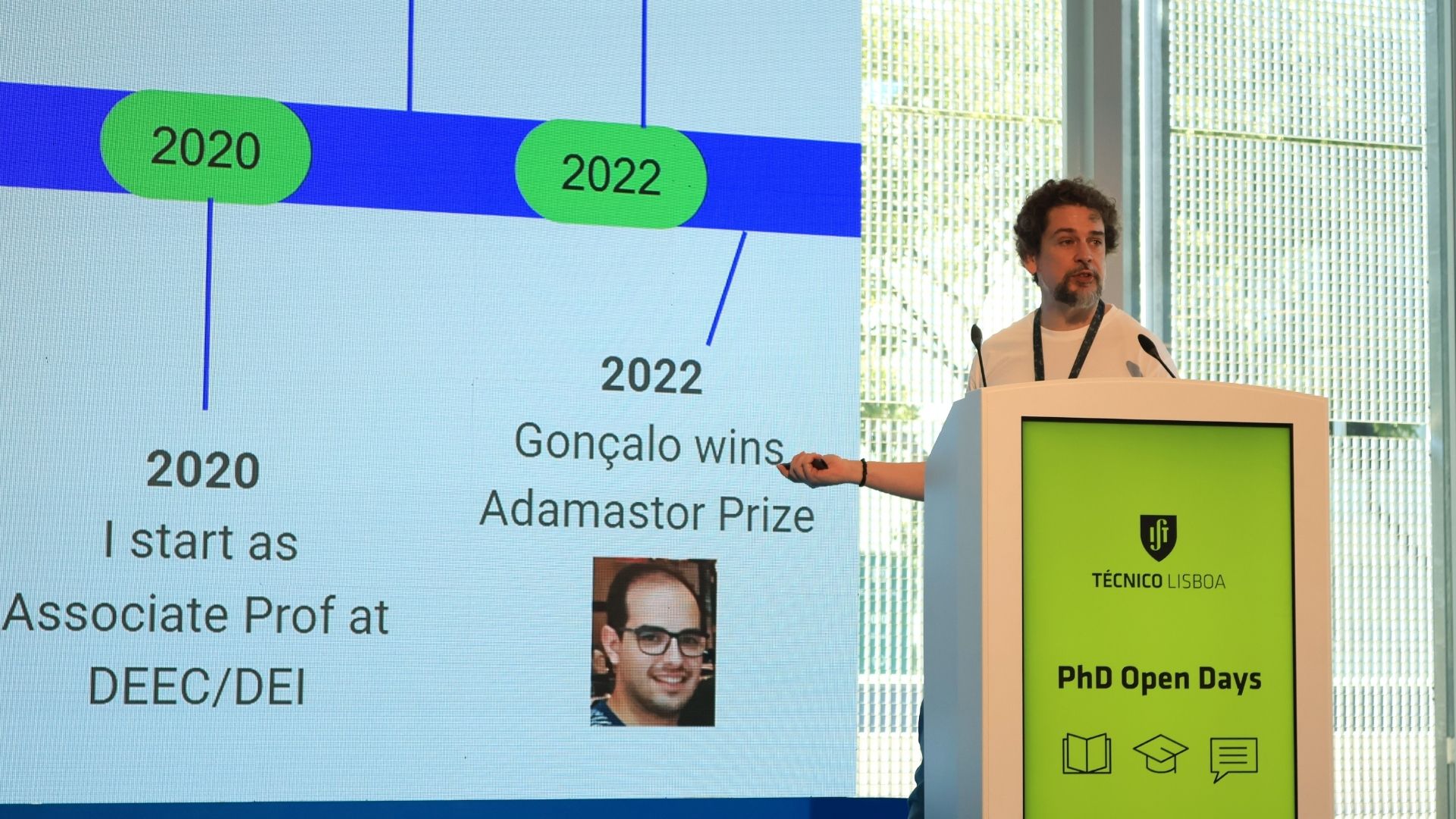
The second session of the PhD Open Days, Invited Talks: "From a PhD to an ERC Grant", featured the participation of André Martins, professor at the Department of Electrical and Computer Engineering and researcher at the Instituto de Telecomunicações, and Marco Piccardo, professor at the Department of Physics. During the session, André Martins shared insights into his career path — from completing his PhD in 2012 to joining the SARDINE Lab and the EuroLLM project, both supported by the European Research Council (ERC).
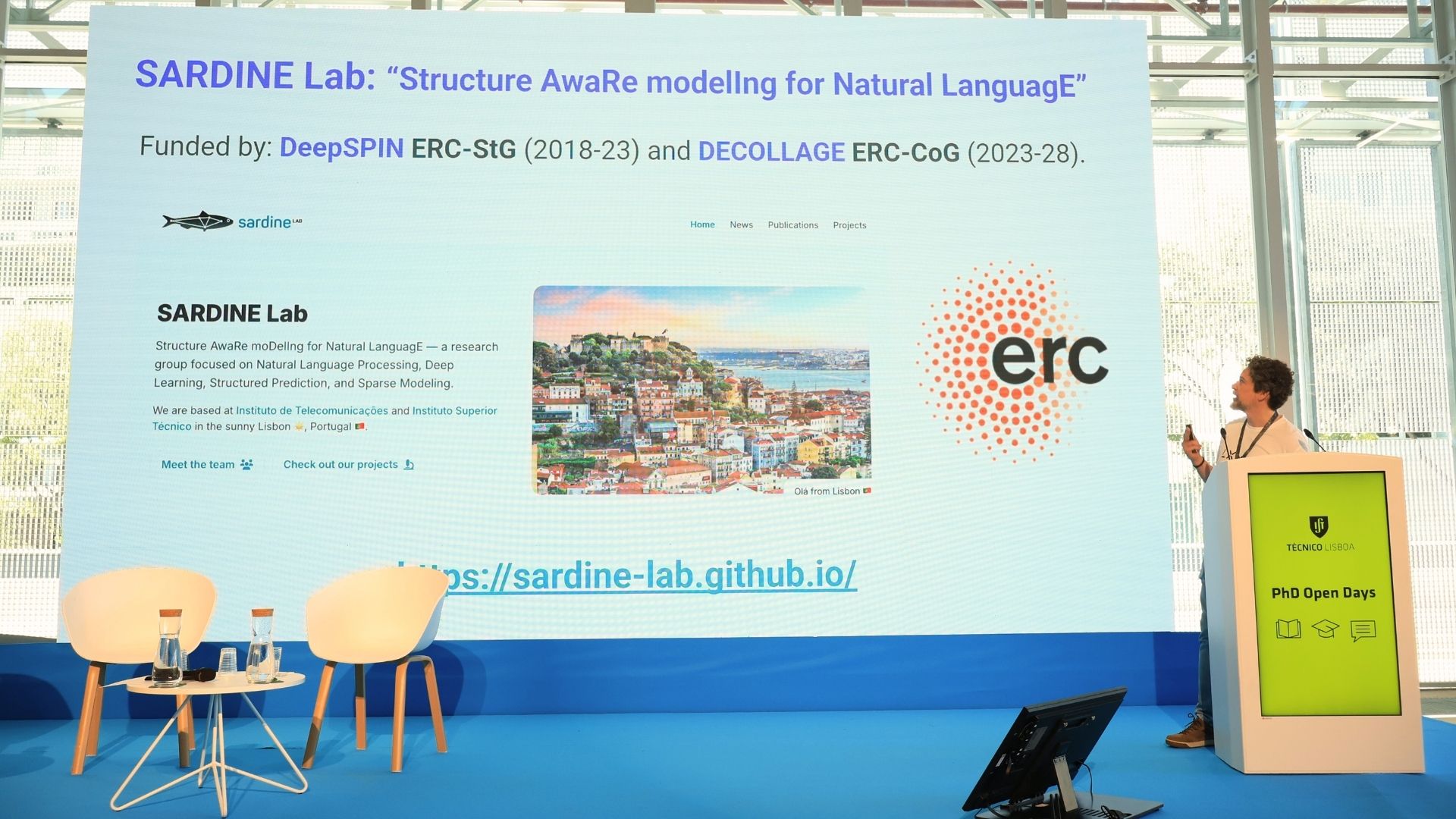
After completing his PhD, the researcher joined Unbabel in 2015 as Head of Research — a language operations platform powered by AI. A year later, he became an invited professor at Técnico, and in 2018 his team received its first funding from the European Research Council through the DeepSpin project, focused on deep learning applied to natural language processing.
That same year, the SARDINE Lab – Structure AwaRe moDelIng for Natural Language was founded, specializing in the same research field. The researcher began by emphasizing the lab’s culture, highlighting core values such as trust, transparency, closeness, and collaboration. What is expected from a PhD student or a researcher? André Martins addressed this question by stressing the importance of reflecting on relevant problems, maintaining a focus on research quality, collaboration, and communication — including with other research groups — all of which are crucial when preparing grant applications.
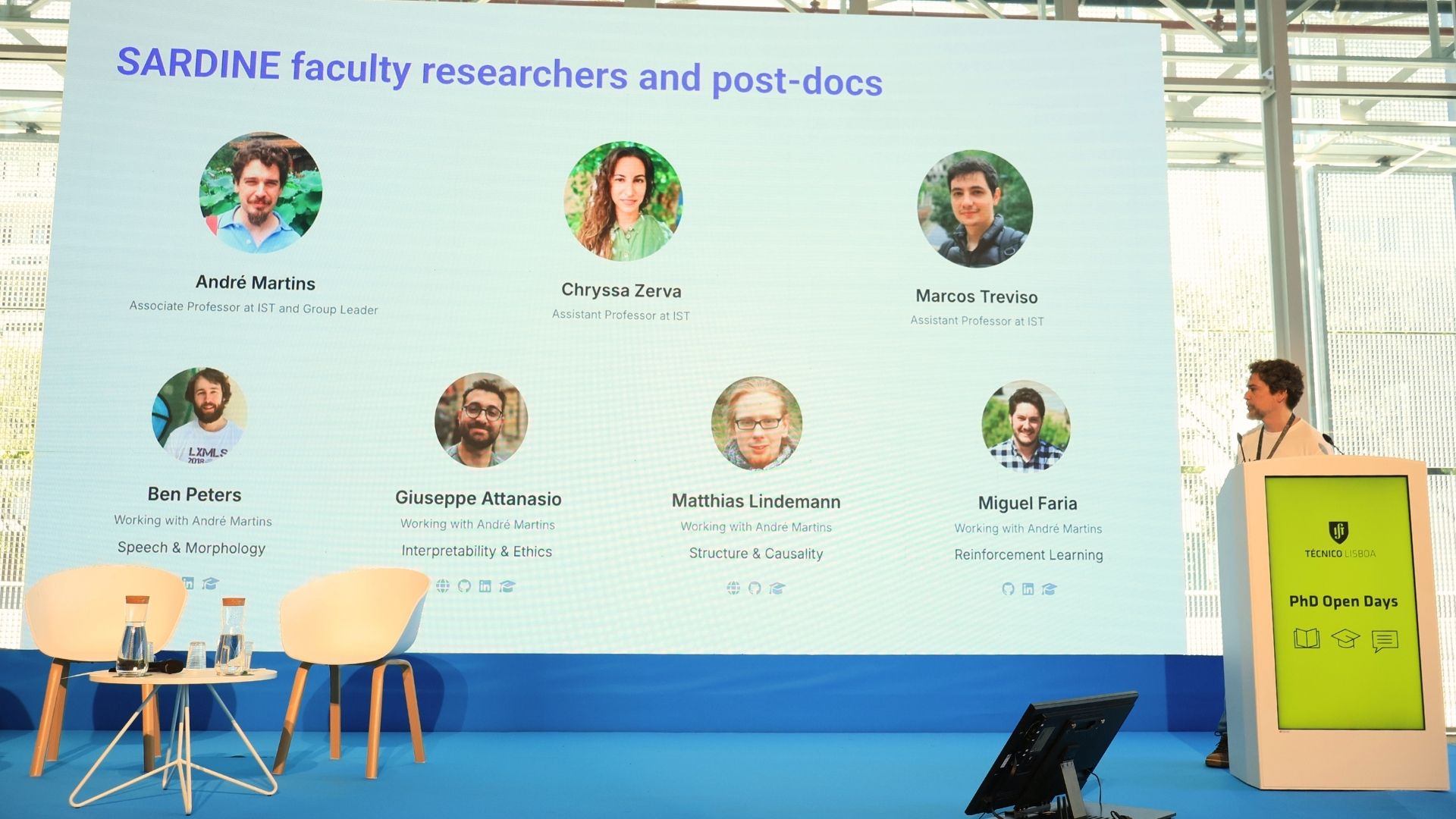
Within the SARDINE Lab, the project DECOLLAGE – Deep Cognition Learning for Language Generation (2023–28) was created, aiming to develop language generation models inspired by biological systems capable of coordinating multiple modalities (such as image, text, and video, among others). DECOLLAGE also seeks to incorporate context-aware planning and uncertainty quantification, while providing trustworthy explanations. Moreover, it aims to include mechanisms for consolidated memory and social awareness, with improved energy efficiency.
EuroLLM, on the other hand, focuses on creating a European large language model that integrates the 24 official languages of the European Union.
In connection with this line of research, André Martins also mentioned the Lisbon Machine Learning School (LxMLS) — an initiative launched in 2011 that consists of an annual week-long event covering “machine learning topics, from theory to practice, that are crucial for solving natural language processing (NLP) problems across different application areas.” Finally, he discussed ELLIS – the European Laboratory for Learning and Intelligent Systems, which aims to build a top-level scientific community focused on Artificial Intelligence and Machine Learning.
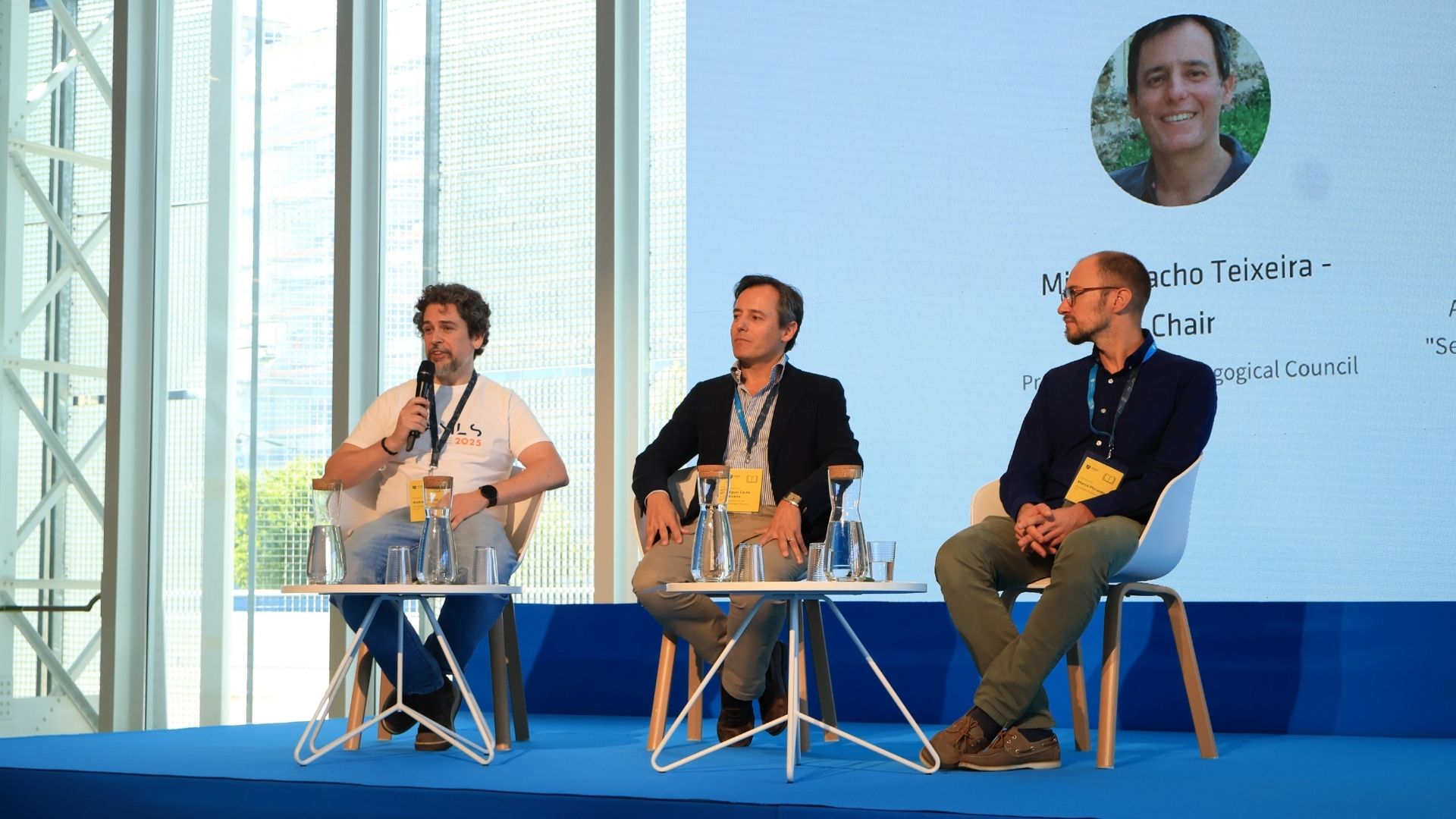
After the project presentations, the speakers answered questions from the audience on topics such as ethics, tackling job insecurity in research, career choices, and grant applications. Regarding post-PhD career paths, André Martins emphasized that students should stay focused on the quality of their research and on the factors that make it distinctive: “this is more important than publishing as many [scientific papers] as you can.” He also reinforced the importance of communication — a key element for both the visibility and adaptability of research projects, considering the various types of feedback received.
As for preparing funding applications, the researcher highlighted the importance of careful planning and structuring of the work, as well as the need to present proposals that address real-world problems and acknowledge existing limitations. “We want to solve big problems; it’s not about overselling ideas,” he noted, reinforcing the need for researchers to submit proposals that aim to find solutions applicable to today’s challenges.
